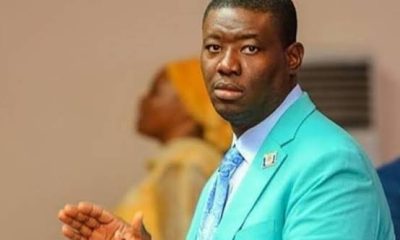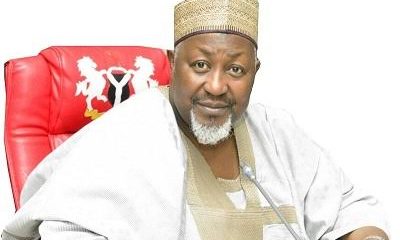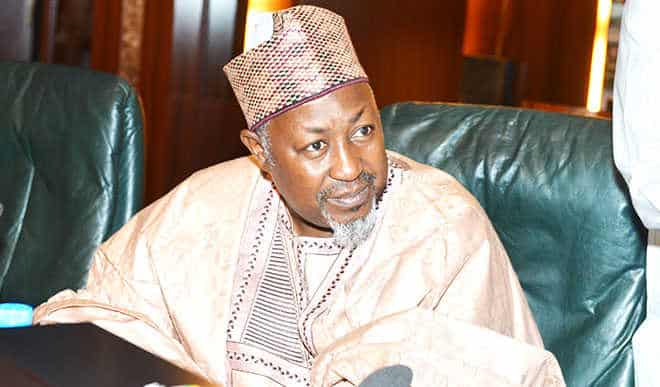Business
Jigawa State To Start Exporting Goats To Kuwait Soon

Jigawa state would soon begin exportation of goats to Kuwaiti and other Arab Countries once its goat multiplication farming starts to yield desired results, the state governor Alhaji Muhammad Badaru has said.
About 600 goats were distributed to 220 women by the state government as parts of efforts geared toward the goat multiplication farming programme.
The women were given three goats each and are expected to make certain returns to the government after a given period of time.
Governor Badaru who spoke at a seminar on “Validation Workshop on Capacity Gaps for Implementing Holistic Empowerment for Livelihood Programme (HELP)” noted that 90 percent of the women who benefitted from the programme have abided the conditions by returning three goats each to the government as interest on the goats earlier distributed to them.
“As soon as we have enough of these goats we will export them to Kuwait, Saudi Arabia, Qatar, just to mention a few. In Jigawa we have been able to produce large number of goats after distributing 3 goats each to over 600 women. Now we have large number of goats which in the next few months or years we will be able to export the necessary requirements to Kuwait.
“For you to know how serious we take agriculture in Jigawa, we discuss it every Monday at council meeting.
The governor said because it cannot compete with its bigger neighbour in terms of industrialization, it had resorted to its area of comparative advantage.
He disclosed that Dangote rice farming has a robust out-grower scheme covering a piloted area of 8’000 hectares, which he said involved 5,000 farmers, launched in Hago village of Kafin-Hausa local government area of the State.
“Jigawa State can’t be industrialized because all the industries are in Kano, we cannot be centre of commerce because Kano is already a centre of commerce.
“But we are not relying on oil revenue because oil Well will soon be history if it runs dry, and for us to survive as a State, we have to work on competitiveness.
“We have to develop our people, our business, develop our agriculture, and this will enable us to keep the State abreast if the oil Well dry up. So agriculture is our life line.
“We have trained over 145,000 youths across the State on rice planting implement, to plant and transplant. We also trained women on rice parboiling. So we have developed alot of jobs on rice value chains. We doing same in Tomatoes, groundnut sectors. etc.
“Our being here is to discuss agriculture because it is a duty we must do for our people” he said.
The workshop was organised by the Arewa Research Development Project in collaboration with Forum for Agricultural Research in Africa and the Nigeria Once tive based Risk sharing system for agricultural lending.









